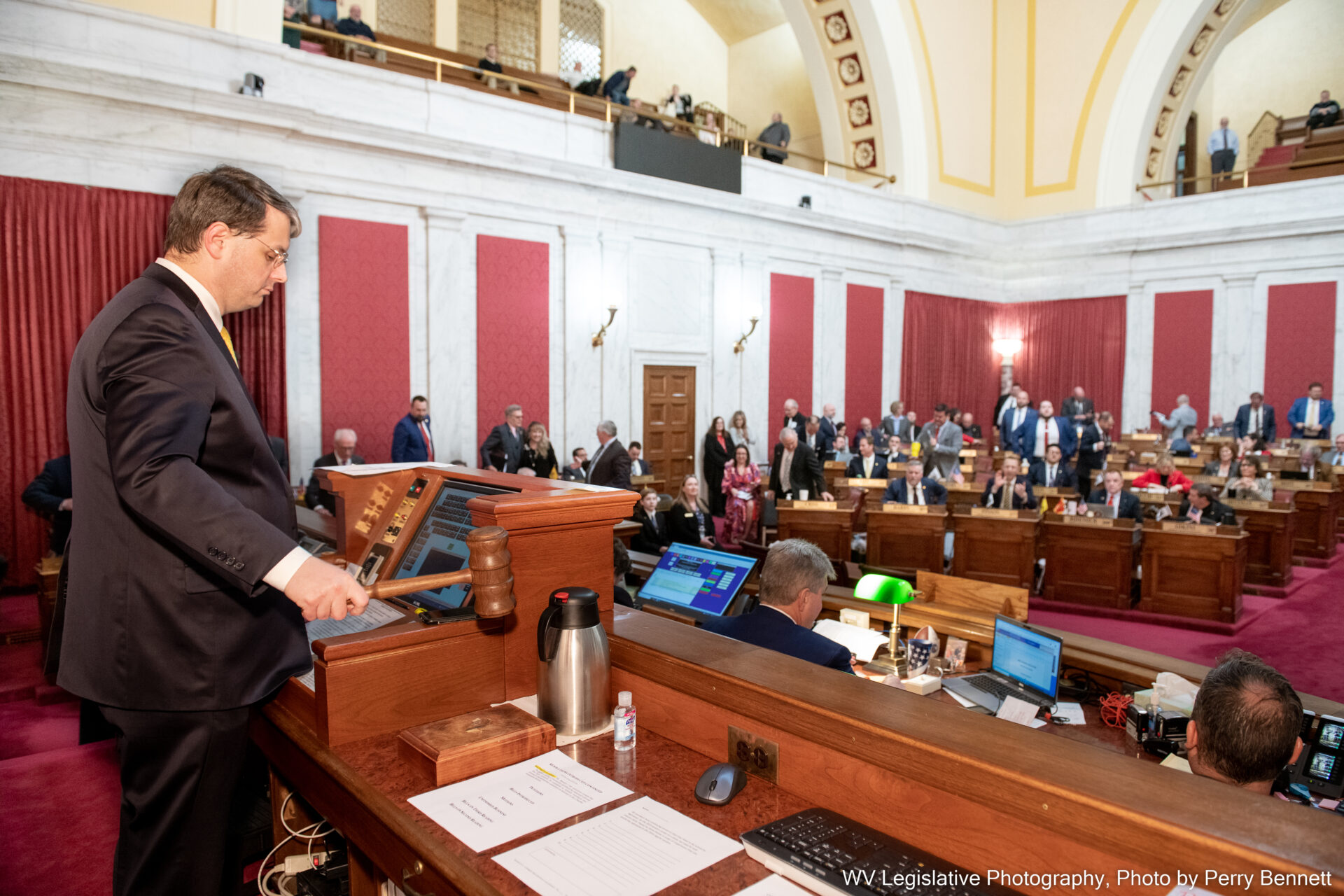A group of state legislative and education leaders will soon embark on another national economic development tour. The ChooseWV program tells West Virginia’s story directly to those who can make a major job and industry impact.
Last summer, West Virginia University President Gordon Gee, Marshall University President Brad Smith, Speaker of the House of Delegates Roger Hanshaw joined university and legislative staff for the first of three ChooseWV economic development tours. Hanshaw said the very first stop, in California’s Silicon Valley, proved that face-to-face promotion can be fruitful.
“On our very first visit we pitched West Virginia and the benefits of locating an office facility in West Virginia, to a little over $1 trillion worth of market capitalization that day,” Hanshaw said. “That’s a trillion with a “T”; a little over a trillion dollars’ worth of companies were in the room that day and some of those are already beginning to bear fruit now. We’re receiving calls from companies that were in the room that day talking about whether West Virginia is a convenient and suitable place for them to, for example, place back-office operations on the East Coast.”
Other stops on previous tours included New York City and Washington, D.C. The 2023 spring and summer ChooseWV ventures include meeting with CEOs, investment bankers, trade ambassadors and alumni. Stops range from Boston to Seattle and Los Angeles. Gee said he’s along to show West Virginia has a committed educational system.
“We want to hear from employers and those who may locate here about what we can do to make it very easy for them,” Gee said. “Tell us what you need to have. If you need to have 40 engineers, then we’ll train those engineers. If you need to have 25 physicians, we will train those physicians. If you need to have 40 school teachers, that’s what we’ll do.”
Hanshaw said the ChooseWV visits stemmed, in part, from a crash course in economic development when the Fortune 200 steelmaker Nucor, selected Mason County for a multi-billion dollar plant. He also said recruiting lessons learned during the pandemic showed the new wave of remote workers don’t need to be tied to a big city desk.
“I don’t know about you, but I’ve been to New York and Chicago and Houston and Los Angeles and Miami and I like it right here in West Virginia a lot better,” he said. “As it turns out, so do a lot of the remote workers. The ASCEND program that President Smith funded, and that we’re orchestrating in collaboration with WVU and Marshall now has been oversubscribed in every round so far. In fact, it’s oversubscribed again this year, as I understand it. We have people who are wanting to come here to be remote workers. Now we need remote jobs here for them to do. That’s part of what the program is about. It’s about making sure that people who may not be thinking about West Virginia are doing so.”
Gee said the state’s educational system is primed to enhance recruitment for companies geared toward renewable energy as a driver or product
“We’ve been in the energy business a long time, we have all these very highly skilled machinists and others in the southern part of the state,” Gee said. “People who immediately can turn around and start doing work on a re-trained basis for any industry who wants to come here. It requires an educated population, to be able to create the functioning activities that surround energy, whether it be in the coal, oil, gas area, or in the renewable area. These all require a lot of educated and skilled people, and that’s what our job is, it’s not just simply the university. When we talk about education, we talk about pre-k through life, our skilled trade folks, the people out of the technical programs at the technical schools, community colleges, we’re all into this.”
Hanshaw said West Virginia’s now all-encompassing energy profile is trending toward the power of the future.
“Our economy is going to reach a point in my lifetime, and I hope it’s sooner than later, in which our fossil resources become too valuable to burn,” Hanshaw said. “A time when we need to use them as downstream manufacturing feedstocks and the raw materials for other higher end processes and that’s some of what we’re seeing. We’re seeing people in the chemical industry, the petrochemical industry, take a second look at West Virginia in the way that they used to take a first look at West Virginia when the petrochemical industry was being born right here in the Kanawha Valley. It’s circling back around to those days again.”
ChooseWV’s 2023 spring and summer tours happen in mid-May and late June. Hanshaw said he hopes to exceed that $1 trillion worth of market capitalization.
